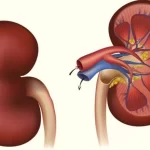What is polycystic ovary syndrome?
Polycystic ovary syndrome ( PCOS) is a condition in which the balance of estrogen and progesterone in the sex hormones of women is disturbed. This leads to an ovarian cyst. PCOS can affect a woman’s menstrual cycle, fertility, cardiovascular function, and appearance.
Polycystic ovary syndrome is a prevalent endocrine disorder in women and is one of the main reasons for decreased fertility nowadays.
This problem is mainly found in women between 15 and 30 years of age. About 10% of women in India suffer from PCOS. Yet awareness of this problem is negligible and women do not get it diagnosed for many years. These are not Syst, but many small eggs that have not yet matured and appear on the ovaries in ultrasound. If there are not enough hormones in the patient’s body, the eggs will not mature. Ovulation and conception cannot occur until the eggs develop and mature.
Causes of Polycystic ovary syndrome(PCOS)
The main reason for PCOS is the change in the level of hormones, due to which ovaries do not develop fully in the ovary and it becomes difficult for them to get out of the ovary. However, it is difficult to say scientifically precisely what causes PCOS, but the general assumptions about it are as follows.
Genetic Causes
Some women may have PCOS problems genetic. This problem can happen from one generation to another woman. Although there is a lack of scientific research in this regard, but whose mother is having this problem, more caution should be taken.
Growth of male hormones
Sometimes women’s ovaries start producing more amount of male hormones (androgens). Due to the high production of male hormones, it is difficult for the egg to come out during the ovulation process. This condition is called hyperandrogenism in medical language.
Insulin imbalance
The insulin hormone found in the body can also cause PCOS. Hormones work to convert the sugar and starch found in the diet into energy. At the same time, when the balance of insulin is disturbed, the androgen hormone begins to rise. This leads to reading effects on the ovulation process and causes PCOS in women.
Poor lifestyle
This problem can also arise due to a poor lifestyle. Excessive consumption of junk food does not provide enough nutritious ingredients to the body. Also, the consumption of drugs and cigarettes is a reason for this disease.
Types of Polycystic ovary syndrome PCOS (PCOD)
Post-Pill PCOS: Slow-restarting menstruation will return to normal in about six months after discontinuation of birth control pills in most women; But in some, this blockage may last for years and may require treatment. Controlling hormones with long-term pills makes it difficult for the body to regrow estrogen and progesterone on its own, causing difficulty in ovulation.
Environmental Polycystic ovary syndrome PCOS
An environmental (or other hormonal) imbalance in this type of PCOS interferes with the body’s ability to regulate ovulation. The Trial And Error Method has to be adopted in the diagnosis of this type of PCOS, although once diagnosed it is easy to treat. Insensitive patients, certain foods may interfere with the body’s ability to make eggs by ovulation.
Insulin Resistant PCOS
This is the most common type of PCOS. This type of PCOS causes insulin resistance – when the body becomes less dominant towards insulin and blood sugar becomes unbalanced. Excessive insulin and leptin inhibits ovulation (ovulation; formation of eggs in the ovaries) and stimulates the ovaries to produce testosterone. Insulin resistance is caused by overweight, sugar intake, smoking, trans fats, and environmental toxins.
Immune-Related PCOS
The second type of PCOS is due to chronic inflammation that can be caused by several reasons. This inflammation inhibits ovulation (formation of eggs in the ovaries) and disrupts hormone receptors, stimulating the adrenal gland androgens such as DHEA. Women whose family members have ever had immune-related diseases are at higher risk of having this type of PCOS.
Symptoms of Polycystic ovary syndrome PCOS
The most prominent symptom of PCOS involves changes in the menstrual cycle, besides other symptoms are as follow:
They usually cease after the puberty period during puberty. This is called secondary amenorrhea.
Irregular periods and discontinuation.
Other symptoms of Polycystic ovary syndrome PCOS include:
- Hair growth in many parts of the body, such as the chest, abdomen, face, and nipples.
- Fertility problems
- Depression
- Acne on the face, chest, or back.
- Weight gain or weight loss problem.
- Changes in the skin, such as the appearance of dark marks on the skin. Especially around the armpits, waist, neck, and breasts.
- head hair fall
Polycystic ovary syndrome PCOS (PCOD) treatment
Medications:
Medications are prescribed to you based on your condition and symptoms. Do not take any medicine without the doctor’s advice.
Surgery
Surgery may also be used to treat PCOS in some women. Ovarian Drilling is a procedure in which a hole is made in the doctor’s ovary with the help of a small needle, which has an electric current. This is done so that part of the ovary can be destroyed. It is a short-term remedy that can increase ovulation and reduce male hormones. Cystectomy when the condition becomes severe
PCOS can be treated, but it cannot be completely cured. Treatment focuses on controlling symptoms and handling the condition to avoid complications. The method of treatment will vary depending on the specific symptoms that occur in women individually. Measures to control symptoms:
Eat a healthy diet
Every woman suffering from PCOS should eat a healthy diet and exercise regularly, especially those who are overweight. This will control the menstrual cycle and reduce the blood glucose rate.
Take birth control pills
Take birth control pills if you are not planning to become pregnant. These will be able to treat pimples, control the menstrual cycle, and reduce the level of male hormones in the body, such as testosterone. Fertility drugs can be prescribed for ovulation.
Home remedies for polycystic ovary syndrome (PCOS)
Polycystic ovary syndrome is a problem that is not entirely possible to overcome with the help of home remedies, but with the help of home remedies, its symptoms can be reduced to some extent. Let us know in detail about these home remedies.
Coconut Oil
Using coconut oil may help in the treatment of PCOS. Scientific research conducted in this regard suggests that the intake of a diet consisting of demonic acid can reduce the PCOS problem by reducing the production of androgens. Demonic acid is a type of non-toxic fatty acid, which consists of 10 carbon molecules. At the same time, demonic acid is found naturally in coconut oil. At the moment, more research needs to be done to find out how it works.
Primrose Oil
According to research published in NCBI, the use of evening primrose oil can help in the treatment of PCOS. In this research, some women were given vitamin-D and evening primrose oil for 12 weeks. This led to an improvement in triglyceride (a type of fat), very low-density lipoprotein cholesterol (VLDL). At the same time, oxidative stress also decreased, due to which the patient got some relief from the symptoms of PCOS.
Vitamin D
A research paper published on the website of NCBI (National Center for Biotechnology Information) states that the use of vitamin D can help relieve PCOS. According to this research, vitamin D can act to reduce abnormally increasing serum anti-Mullerian hormone (AMH) levels. AMH is a type of hormone that can cause PCOS if it increases. Besides, metformin therapy (therapy adopted to treat diabetes) in women with PCOS, as well as vitamin-D and calcium supplements, helps regularize menstruation and correct the ovulation process. In such a situation, it can be said that the symptoms of PCOS can be overcome by taking vitamin D.
Green Tea
According to one study, the intake of green tea can reduce the amount of glucose in the body, which can relieve the symptoms of PCOS. It can also help reduce insulin. As mentioned in the article above, unbalanced amounts of insulin can cause PCOS. It can be said that the use of green tea in PCOS can be helpful. This information is given in scientific research published on the NCBI website.
Juice of Aloe Vera
Aloe vera juice can be used in the treatment of PCOS. Scientific research suggests that aloe vera gel can protect against PCOS. According to this study, aloe vera gel may help normalize hyperglycemic (high blood sugar) status in women struggling with PCOS. This is because aloe vera gel has a hypoglycemic effect of lowering blood pressure. Also, aloe vera contains phytosterols (a type of plant sterol) and Phyto-phenol. This information is available on the NCBI website.
A Balanced Approach to PCOS: 16 Weeks of Meal Prep & Recipes for Women Buy Hear






